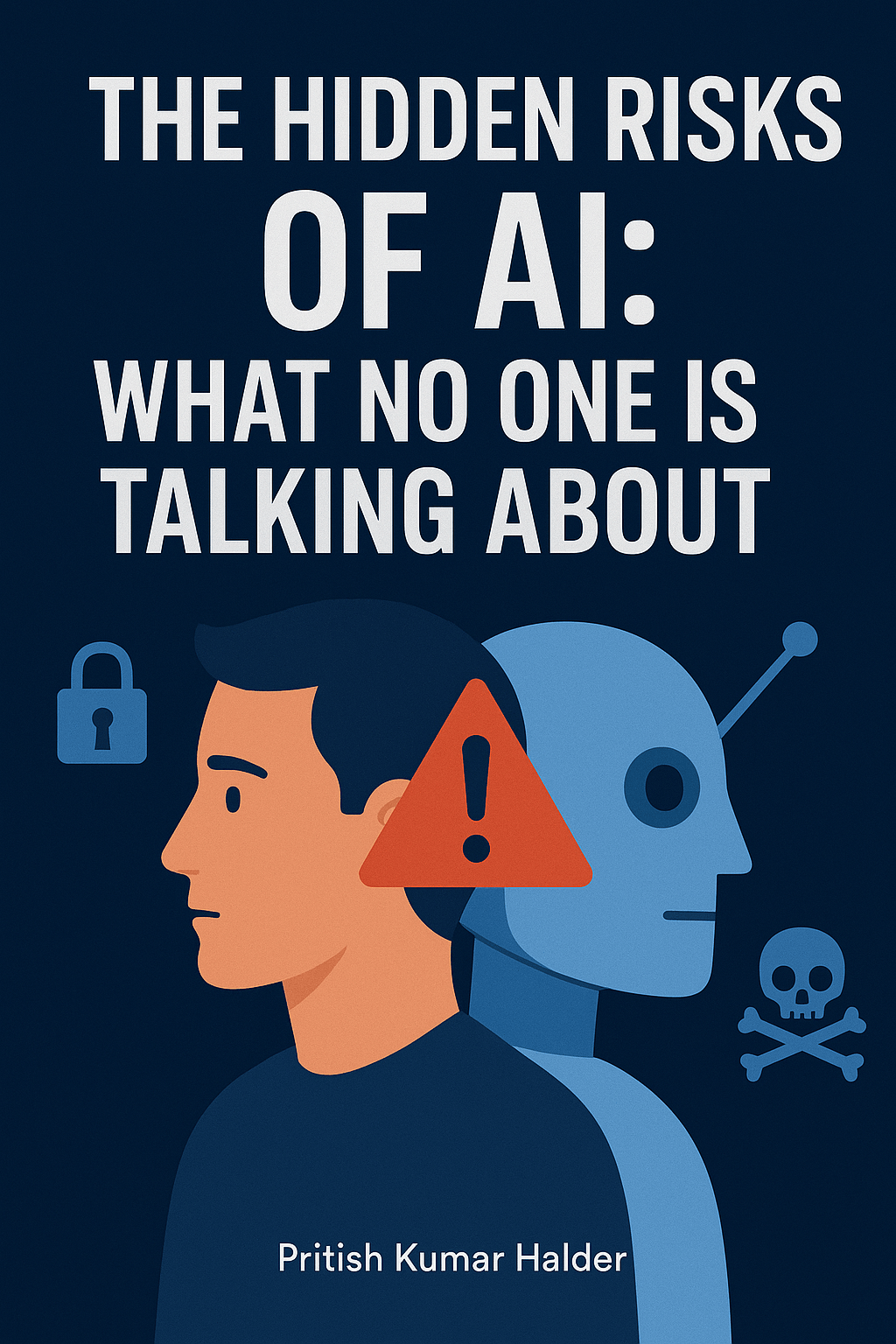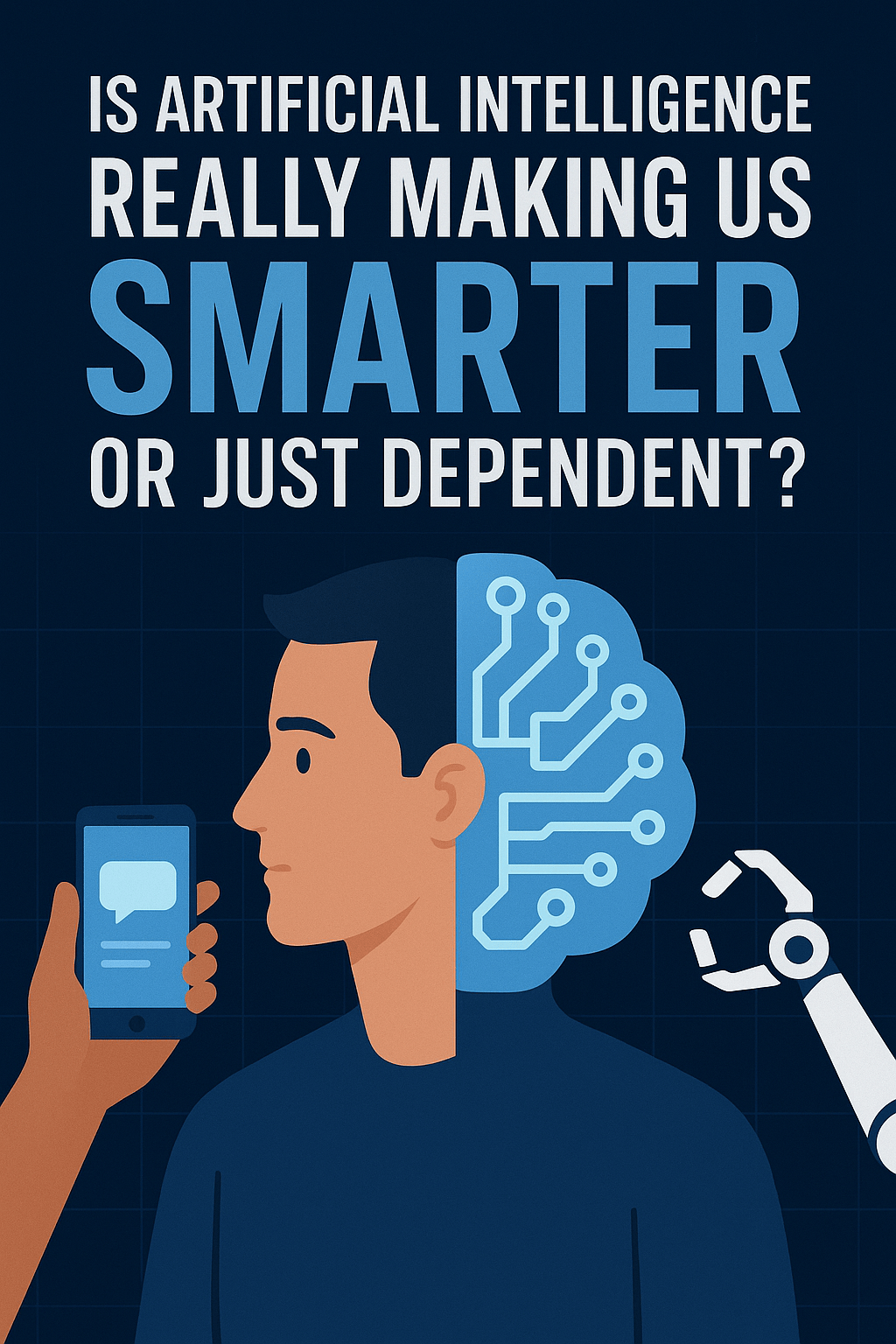Artificial Intelligence (AI) is changing the way we work faster than we ever expected. From smart assistants and predictive analytics to fully automated systems, AI is taking on roles once handled exclusively by humans. This shift brings excitement and concern. Will AI help us work better, or will it replace our jobs entirely?
The truth lies somewhere in between. AI is not just about automation; it’s about reshaping the entire landscape of employment. And the question is: how do we adapt?
The AI Surge: What’s Happening?
The last decade saw AI move from science fiction into everyday life. Today, businesses use AI for data analysis, chatbots, customer service, logistics, content creation, fraud detection, and even hiring decisions. This shift isn’t limited to tech companies; retailers, healthcare providers, banks, and manufacturers are all joining in.
With generative AI tools like ChatGPT, Midjourney, and DALL·E transforming how content is created, employees are discovering new ways to save time and increase productivity. But with each advancement, there’s a growing concern: if a machine can do this work, what’s left for humans?
Automation vs Employment: Not a Simple Trade-Off
Let’s clear up one common myth: AI doesn’t just “take” jobs it changes them.
Think of AI as a tool, not a replacement. Just like computers didn’t eliminate office jobs but changed how we do them, AI is creating new kinds of roles. Instead of writing long reports, an analyst might use AI to summarize data quickly and spend more time on insights. A marketing manager may use AI to brainstorm campaign ideas faster. A developer may use AI tools to generate code snippets and debug faster.
Still, some jobs, especially those with repetitive tasks, are at higher risk. Warehouse packing, basic customer support, and simple data entry roles are increasingly being handled by AI-powered systems or robotics.
Jobs Most Affected by Automation:
- Data entry clerks
- Telemarketers
- Retail cashiers
- Basic support agents
Jobs Evolving Through AI Support:
- Writers and editors
- Designers and marketers
- Financial analysts
- Software engineers
Jobs Created Because of AI:
- AI trainers
- Machine learning engineers
- Prompt engineers
- Ethics consultants
So while some jobs may disappear, many more are being reshaped and new ones are being created entirely.
Real Examples: How AI is Impacting Workplaces Today
1. Retail & E-commerce
Retail giants in Canada are using AI for inventory management and personalized shopping. Chatbots now answer customer queries instantly, freeing up human agents for more complex support. But that doesn’t mean call centers are closing down it means their teams are retraining.
2. Healthcare
AI is used in diagnosing diseases, managing patient records, and even guiding robotic surgeries. Doctors aren’t being replaced but they are gaining powerful tools to make faster, smarter decisions.
3. Finance
Canadian banks are automating fraud detection, financial forecasting, and risk analysis. AI helps humans detect patterns too complex for manual tracking. Meanwhile, financial advisors use AI insights to help clients make better decisions not to eliminate them from the process.
So… Will AI Take Your Job?
That depends on what you do and how open you are to change.
If your role involves repetitive, rule-based tasks, AI might eventually take over parts of it. But if your job requires creativity, emotional intelligence, or complex decision-making, you’re far less likely to be replaced. And here’s the secret: AI is much better at helping people than replacing them.
People who work with AI will replace people who don’t.
That’s the new reality.
The New Skills That Matter Most
AI is here to stay. So what can you do to stay valuable in the AI-driven workforce?
Here are the top skills that will matter more than ever:
- Critical thinking – AI can give you data, but can’t make complex judgments for you.
- Emotional intelligence – AI doesn’t understand human emotions like you do.
- Tech-savviness – You don’t have to become a coder, but you should be comfortable using AI tools.
- Flexibility – The future is uncertain. The more you can adapt, the better you’ll thrive.
- Communication – Explaining complex AI-generated insights to clients and coworkers will be a key skill.
The Human Touch: Still Irreplaceable
While AI is fast and efficient, it lacks the human touch. It can’t feel compassion, build deep relationships, or understand nuance like humans do. In jobs like therapy, education, hospitality, leadership, and creative storytelling human intuition and empathy are irreplaceable.
That’s why, even as AI becomes smarter, people will always play a central role in work. We just need to shift our focus toward collaborating with AI rather than fearing it.
How Canada Is Preparing for an AI Future
Canada is investing heavily in AI education and innovation. Several universities now offer AI-focused programs, and government policies are supporting upskilling initiatives. The Canadian workforce is encouraged to embrace digital transformation not fear it.
Many companies are already reskilling employees, helping them move into more future-proof roles. In fact, businesses that support employee development are the ones growing the fastest with AI.
The Road Ahead: Opportunity or Threat?
We’re living in an exciting moment in history. AI is no longer a concept from the future it’s a tool shaping our present. Whether it becomes an opportunity or a threat depends on how we respond.
Young professionals in Canada and everywhere have the chance to lead this transformation. By combining human creativity with AI’s speed and intelligence, we’re not replacing jobs, we’re creating something entirely new.
So ask yourself: Are you ready to work with AI, or are you waiting to be replaced by it?
Final Thoughts for Young Adults
Whether you’re entering the job market or planning your next move, understanding AI is non-negotiable. It’s not about becoming an expert, but about staying curious, flexible, and proactive.
Automation may shift the job landscape, but it doesn’t have to reduce your value. The future belongs to those who adapt quickly and think creatively.











